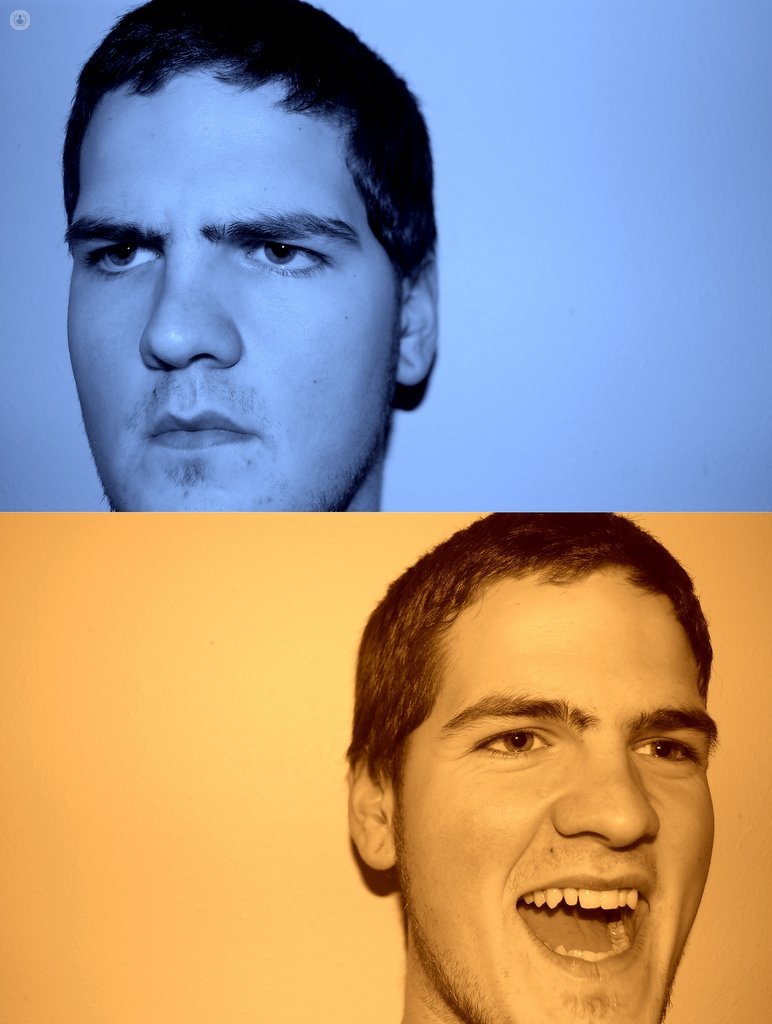What is bipolar disorder?
Written by:Bipolar disorder is a mental disease characterized by periods in which mood is altered. These periods or phases, the mood can be perfectly. The name of bipolar refers to the two poles of the phases, depression and euphoria (called mania ).

These changes of mood to which we refer are not normal that usually have that one may be somewhat more decayed or happy, it is a condition that significantly interferes with daily activities and relationships.
Causes
There is no single cause of bipolar disorder. It is currently still studying that appears in some people. So far, we have identified a number of factors that increase the risk of suffering. Among them are genetic factors and alterations in brain function.
Bipolar disorder is considered a family disease, that is, you have more chance of getting it if they have relatives who suffer. This is because there is that genetics influence the predisposition to appear, but does not imply that inherit in all cases where records are taken into the family.
Symptoms
As mentioned, is an illness that presents with depression and other periods of euphoria, so the symptoms are different in each of these phases.
-The depressive phases appear own symptoms of depression, among them sad mood, hopelessness, decreased interest in activities previously performed, difficulty in concentration, decreased energy, irritability, decreased appetite, libido and impaired sleep.
-On the other hand, in the phases of euphoria, the mood is usually increased, with feeling of omnipotence, increased activity and energy, diminution of the need to sleep, thinking and language faster than usual, planning new projects and risky behaviors.
According to the level at this stage is talk of mania (very increased) and hypomania (less increased). We must draw attention finish of mania, which in Spanish this term in psychiatry have nothing to do with its meaning in colloquial language, mania in medicine is described, while the colloquial manias fall between the obsessive and compulsive symptoms of other disorders own.
Diagnostics
The diagnosis is based, as in many medical specialties, proper exploration clinic, where the biography of the person, their symptoms, family history is collected, etc.. At the moment, there are no additional tests ( laboratory or imaging ) to confirm the diagnosis, although whether to perform them to rule out diseases with similar symptoms. Although it seems that the diagnosis then is arbitrary and subjective, is not it, since international classifications described in detail a number of criteria required to make the diagnosis.
Treatment
The goal of treatment for bipolar disorder is not healing as it is a chronic disease, but the state of mood stabilization and control of the phases idea that has the minimum impact and quality of life in the person and their environment. To do this, try different drugs according to the phase in which the person is and use other drugs to prevent relapse. So, on one hand would have a long-term treatment, trying to keep the mood in normal, and secondly, medication that treats depressive and manic periods.
In addition to the pharmacological treatment, other complementary psychotherapeutic approaches, such as psychoeducation, cognitive behavioral therapy or family-focused therapy, which can help the course and stages of the disease are the least disruptive possible the life of the person with bipolar disorder and their families.
As with all diseases, treatment is not the same for everyone, because the answer varies from one to the other, so it must be done according to each case. However, there are a number of general therapeutic guidelines in the design of specific treatment is based.


